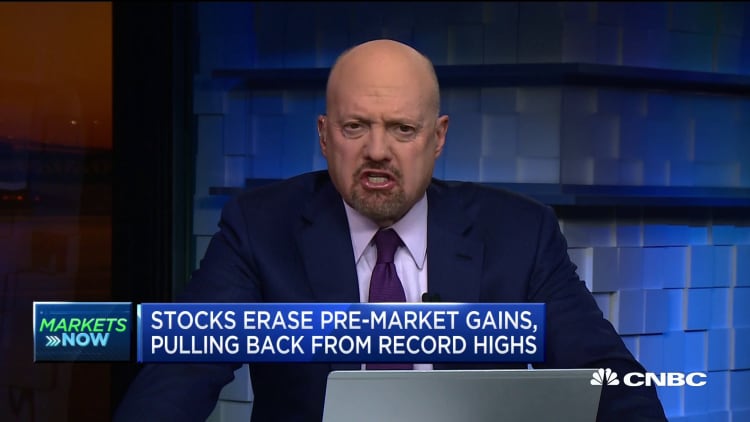Another month brings another Democratic primary debate — and another referendum on "Medicare for All."
Disputes about how quickly to expand health insurance coverage have dominated the first four 2020 Democratic presidential debates. Opponents of a single-payer system will likely use the fifth Democratic debate in Atlanta on Wednesday night to try to poke more holes in plans for government-run insurance.
Following an October debate when rivals hammered her over how she would pay for her Medicare for All plan, Sen. Elizabeth Warren, D-Mass., could find herself fending off blows again. Recent Warren proposals — to transition to and fund her health plan — did not quiet attacks from two leading Democratic candidates, former Vice President Joe Biden and South Bend, Indiana, Mayor Pete Buttigieg.
Biden and Buttigieg, who support forms of a public insurance option, hope to play to more moderate voters who worry about the government scrapping private health plans. Warren and Sen. Bernie Sanders, I-Vt., back a sweeping solution popular within the Democratic primary electorate. They say a government plan will quickly cover all Americans and cut costs.
Some observers saw Warren's Medicare for All transition plan, released just five days before the debate, as an acknowledgment of political realities. The measure calls for passage of one bill to set up a Medicare for All option within her first 100 days in office, followed by another piece of legislation to get rid of private insurance plans by the end of her third year.
It may make Warren's proposal appear more digestible to both voters and Democratic members of Congress skeptical of a single-payer system.
"This is a strategic move to try to lower the temperature around Medicare for All plans," said Robert Blendon, a Harvard University public health professor who studies public opinion.

But Biden and Buttigieg, who usually join Warren and Sanders among the top four candidates in primary public opinion polls, have not let up since Warren outlined the transition proposal. Biden campaign spokeswoman Kate Bedingfield on Friday called the senator's health care stance "problematic" and accused her of trying to "muddy the waters" around the issue.
Buttigieg campaign spokeswoman Lis Smith also called the measure "a transparently political attempt to paper over" eliminating private insurance, which she called a "very serious policy problem."
A Warren campaign spokeswoman did not respond to CNBC's request to comment on the criticism from the senator's rivals or the strategy Warren could use to defend herself Wednesday night. Warren told reporters over the weekend that "my commitment to Medicare for All is all the way," according to the Associated Press.
When asked whether the transition plan reflected the difficulty of passing a government-run health system, the senator said, "I don't see it that way at all."
The attacks on Warren in recent weeks followed an increase in support for her in nationwide and early nominating state surveys. Her health-care financing plan, which promised "not one penny in middle-class tax increases" to cover $20.5 trillion in new federal spending, followed weeks of pressure from rivals to say how she would fund insurance for all Americans.
Sanders, who helped to vault Medicare for All into the political mainstream, has indicated he will not release a specific funding plan for his single-payer proposal.
Public opinion polls help to explain where Democratic candidates have fallen on health care. In October, a Kaiser Family Foundation poll found 51% of Americans back Medicare for All, while 47% oppose it. Support dipped from 56% as recently as April.
The shift could in part reflect the attacks Democrats have lodged against a single-payer system as they detail their alternatives during the campaign, according to Liz Hamel, vice president of public opinion and survey research at the Kaiser Family Foundation.
Still, 71% of Democrats and 51% of independents said they strongly or somewhat favor Medicare for All, according to Kaiser. But only 37% of Americans overall responded that they would back Medicare for All if it eliminates private insurance companies, while 58% said they would oppose it.
At the same time, about three-quarters of respondents said they would back either a public option or optional Medicare for All, the Kaiser survey found.
Harvard's Blendon said he thinks Biden and Buttigieg will continue targeting Warren over health care because they think support for a public option "is working for them."
"It has polled extraordinarily well because Americans like choices," he said.


